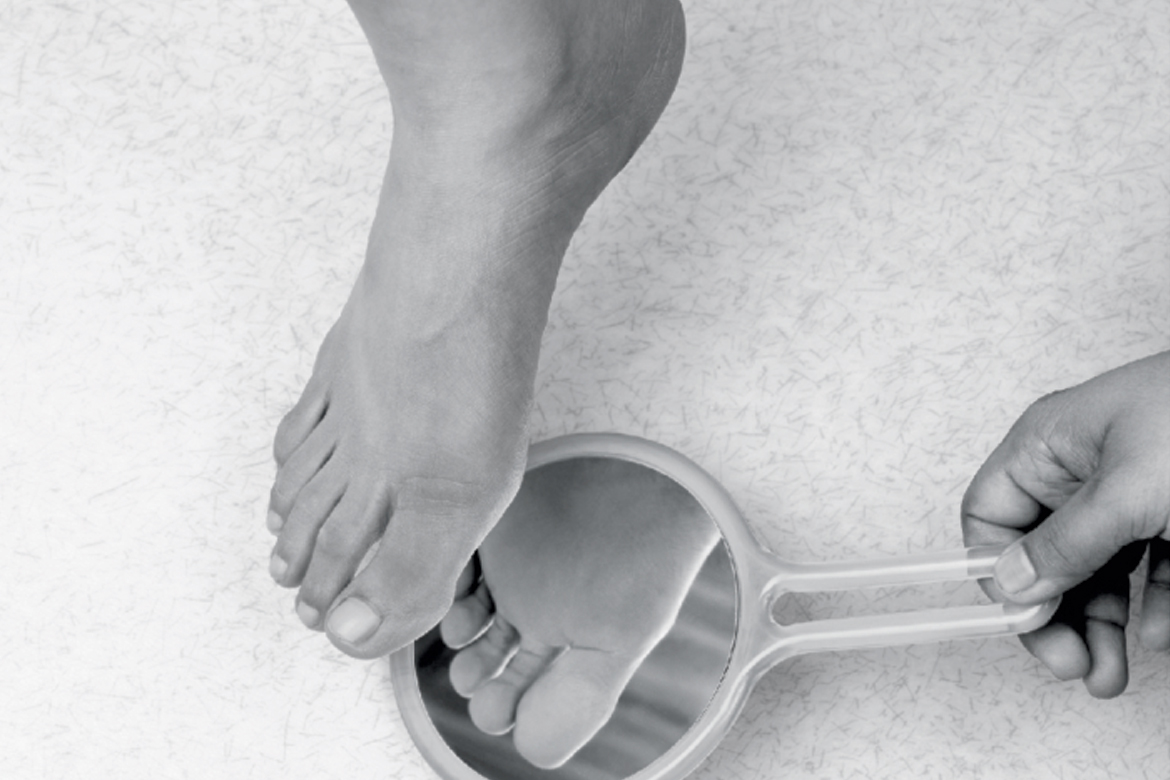People with diabetes can develop many complications, including several foot problems. It has been established that 15% of all diabetics will develop a serious foot problem at some time or the other which can threaten the limb or the life of the individual. The average hospital stay for a patient with a diabetic foot is one month, and roughly 50% may need hospitalisation for three months or more.
Lower limb amputations in diabetic patients account for 50% of all non traumatic amputations. The rate of lower limb amputations in patients with Diabetes Mellitus (DM) is 40 times higher than in people without DM. The incidence of amputation of the other foot within three years is also very high. However, the good news is that with regular visits to the doctor and proper foot care, most of these problems can be prevented.

What happens to the feet in Diabetes?
- Usually in diabetics the nerves get numb, so one often fails to notice injury as there is no pain felt. The sense of temperature is also lost, therefore, one might not feel hot water or hot tiles while walking bare feet
- Feet get deformed, altering the mechanics of weight bearing, thus, exposing the areas of the feet to abnormally high pressures which results in breakdown of the skin
- One sweats less in the feet, so the foot skin becomes rough and dry, leading to cracks, which allow bacteria to enter and cause infection
- The ability to fight infection is reduced in Diabetes as the body’s defense mechanism is weakened. Wound healing mechanisms are also affected, leading to prolonged time for healing of the wounds
- Adding to the problem is the fact that 20% of diabetics with foot problems have narrowed or blocked blood vessels in their feet. This further impairs the healing process as adequate blood flow is required for healing of any wound
- Burning, shock like, numbness or pricking sensation in the feet could indicate foot problem
What services are offered by our Diabetic Foot Clinic?
- Evaluation by a Vascular Surgeon with a vast experience in managing diabetic foot problems, and specifically, problems in the blood vessels of the legs
- Ev aluation by a highly qualif ied Endocrinologist with specific experience in managing this problem to tailor individual diabetic medication as per the requirements
- Evaluation by a Rehabilitation Specialist with a world renowned expertise in foot rehabilitation to suggest the most appropriate footwear
- A computerised foot profile including a Doppler Evaluation, Biothesiometry and Paedopodogram
- Dressing of the wound by a nurse specifically trained in Diabetic Foot Care
The Diabetic Foot Package at Kokilaben Hospital provides all these services under one roof. In addition, if necessary, one can also avail the services of an internationally renowned faculty to open out the blood vessels, along with appropriate footwear made in-house at a reasonable cost.
 Back to Site
Back to Site